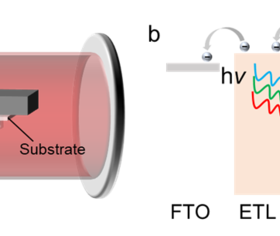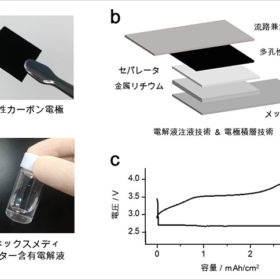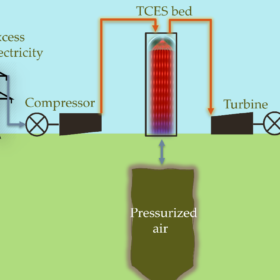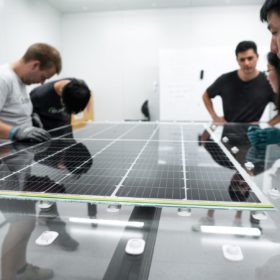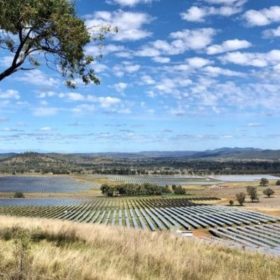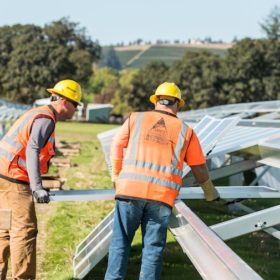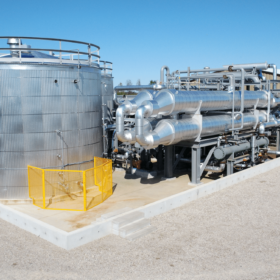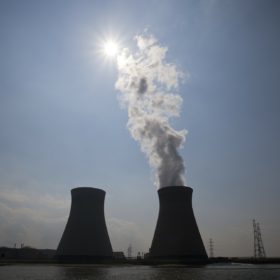Spain’s first utility scale solar plant linked to storage goes online
The 40MW solar plant is linked to 3MW/9MWh of storage and is located in the department of Almaraz, in the southern region of Extremadura. It was built by Spanish energy giant Iberdrola.
Cadmium selenide solar cell with 1.88% efficiency
The cell may be potentially used as a top subcell in tandem crystalline silicon-based devices. It was built with CdSe thin film with a direct bandgap of 1.72 eV.
Solar supply chain trouble to ease this year, according to analyst
Wood Mackenzie has predicted solar equipment cost increases will ease back after last year saw the average cost of solar electricity rise for the first time in the Asia-Pacific region.
Japanese consortium builds lithium-air battery with energy density of 500 Wh/kg
A Japanese group has developed a storage system with potential applications in residential storage, electric vehicles, drones and Internet-of-Things devices.
Improving compressed air energy storage efficiency via chemical reactions
Scientists in the United States have proposed to use a thermochemical energy storage (TCES) technique that stores energy in chemical bonds to recover the heat produced during air compression operations. According to them, this innovation may increase the round-trip efficiency of compressed air energy storage to 60%.
‘Ultra low-cost solar’ gets AUD 40 million R&D boost from ARENA
The Australian Renewable Energy Agency has announced AUD 40 million ($28.7 million) of research and development funding across two streams. Stream 1 consists of cells and modules, while Stream 2 is focused on balance of system, along with operations and maintenance. It is hoped the additional funding will spur Australia’s pioneering solar research to push for the federal government’s “ultra low-cost solar” target of AUD 15/MWh.
Lightsource bp to build 520 MW agrivoltaic project in Australia
The solar arm of oil major BP is proposing to build an agrivoltaic project in the Upper Hunter region big enough to provide 4% of New South Wales’ (NSW) electricity demand. The project will include 296 MW of storage capacity.
PV set to be largest source of new US generating capacity in 2022
About 46% of all new generating capacity in the United States is expected to be PV this year, giving it the largest share of the new US generation mix.
Goldman Sachs invests $250 million in Hydrostor to advance compressed air energy storage projects
The investment is planned to support development and construction of Hydrostor’s 1.1GW, 8.7GWh of Advanced Compressed Air Energy Storage projects that are well underway in California and Australia, and help expand Hydrostor’s project development pipeline globally.
Solar up in Belgium in 2021 but will have work to do as nuclear shutdown nears
Electric transmission company Elia Group noted a bigger slice of the generation mix occupied by nuclear last year, just hours after a London-based consultant said the nation was on track to switch off its reactors before 2026.

